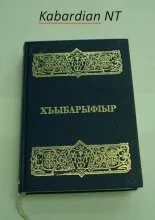
The very first thing that worried the speakers was whether their names would be mentioned in the interview. If so, they would rather have kept silent, though love for their native land and fellow countrymen urged them to speak out.
“The situation for Christians in the Caucasus is very hard. Of my entire family only my father and mother now know what my work is. I have to choose between my project and my relatives all the time”, one young woman sighed. “It was when I converted that the persecution was greatest, and one of my closest relatives came to my church with a gun in order to kill me.
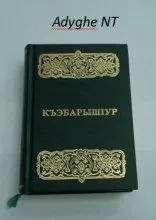
Changing the subject to her translation team and the relations within it, all of a sudden she forgot the tensions of being a Christian in a patriarchal culture, and shared excitedly, “Our team spirit makes me happy despite all the differences between our faiths and confessions. These aspects do not really matter for the Caucasian people. What really matters in my land is one’s humanity. None of us will ever say, ‘I am a Christian, while you are a Muslim, thus we do not have anything in common’. It is much more significant for us to see what sort of a person you are, what you do, how you work, and what your human traits are. If you deserve respect, you will be respected and listened to. In theWest you may come up to a person with the Scripture and suggest that he reads from it. If he reads and converts, he will find out from the Book itself what he needs in order to start a new life, and he will look upon you with new eyes, the eyes of a believer. It is not so in the Caucasus. People will first look at you, at your manner of life and behavior, and if you deserve their respect, they may become interested in your Holy Scripture and accept it from you”. Such was the portrait of the Caucasus she depicted, disclosing a very different facet of the region from the one in her first disclosure a few minutes earlier.
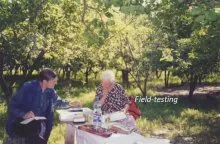
Once we started speaking about her countrymen, this lady forgot her own troubles in the very same manner as did the first one. Her words now reflected deep and selfless love. And again it was a proverbial expression that first came to her mind, “We have an interesting expression. When you ask a person, ‘Aren’t you Adyg?’ by this you mean, ‘Do you have a human heart? Are you able to show human kindness?’ This is how we respect the word ‘Adyg’ and understand the importance of being ‘Adyg’ not only by nationality, but in the depth of one’s inner being”.
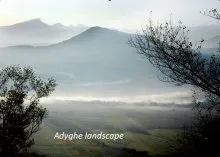
The last person I in
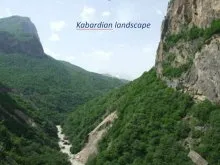
The Books of Exodus and Proverbs in Adyghe and the Book of Proverbs in Kabardian will be published in 2014. Your financial and prayer support is very welcome.
___________________
* Although both women call themselves Adyg, they belong to different projects and different but closely related peoples. Unlike the word “Adyghe”, which describes one particular IBT project, the word “Adyg” is the self-designation (endonym) used by several Circassian people groups now scattered in different parts of Russia.
IBT Russia/CIS is a non-profit organization financed through contributions from individuals, sponsoring organizations and foundations.
You can donate to IBT:
Through: AO UniCredit Bank, Moscow
SWIFT: IMBKRUMM
In favour of: Institute for Bible Translation
Address: 119334, Russia, Moscow, Andreevskaya nab. 2
TIN (INN) 7736231521
9-digit Bank identification code in Russian banking system: 044525545
Account no. (IBAN):
634261 USD 4020 02 001 or 40703840700010142881
634261 EUR 4020 02 001 or 40703978700010366720
634261 GBP 4020 02 001 or 40703826600010366723
Through: NOSTRO ACCOUNTS OF AO UNICREDIT BANK, MOSCOW:
USD JPMORGAN CHASE BANK N.A., NEW YORK SWIFT CODE: CHASUS33
EUR UNICREDIT BANK AG (HYPOVEREINSBANK) , MUNICH SWIFT CODE: HYVEDEMM
EUR UNICREDIT BANK AUSTRIA AG, VIENNA SWIFT CODE: BKAUATWW
EUR UNICREDIT S.P.A., MILANO SWIFT CODE: UNCRITMM
GBP THE ROYAL BANK OF SCOTLAND PLC, LONDON SWIFT CODE: RBOSGB2L
Important! In the field "designation" write "CHARITY DONATION"
For more information address IBT
You may sign up to receive our Russia/CIS monthly English newsletter here
